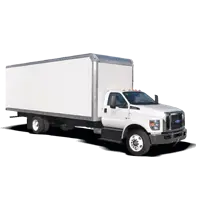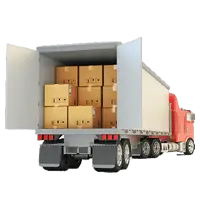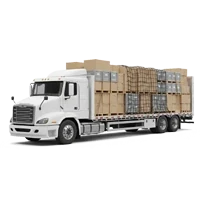Introduction
Shipping pipes for various projects, be it construction, oil and gas, or infrastructure, demands specialized trucking solutions. The journey of these pipes from the supplier to the project site is often fraught with challenges. As someone who’s been involved in several logistics projects, I've seen firsthand how critical it is to get this right. In this article, I’ll share my experiences, the lessons I've learned, and the best practices that ensure the safe and timely delivery of these essential materials.
Understanding the Logistics of Shipping Pipe Trucking
The logistics of shipping pipes is no small feat. I remember working on a project where we had to transport huge, unwieldy pipes through narrow, winding roads. Planning was everything. From coordinating with local authorities for permits to ensuring the availability of cranes for loading and unloading, every detail mattered. Proper handling and secure transportation were paramount to prevent damage and ensure safety.
Benefits of Professional Pipe Trucking Services
- Safety: Professional services ensure the safe handling and transport of pipes, minimizing the risk of damage or accidents. I once witnessed a poorly secured load shift during transit, causing delays and additional costs – a stark reminder of why safety cannot be compromised.
- Efficiency: Experienced carriers can optimize routes and schedules to ensure timely delivery, keeping projects on track. There’s nothing like the relief of seeing your delivery arrive exactly when expected, avoiding costly project downtime.
- Cost-Effective: Reduces the need for storage and handling, saving time and money. Efficient logistics mean fewer headaches and smoother operations.
- Compliance: Adherence to regulatory requirements and industry standards ensures compliance and avoids legal issues. Navigating the maze of regulations is much easier with experts on your side.
Strategies for Successful Pipe Trucking
1. Choose the Right Carrier
Selecting a carrier with experience in pipe trucking is essential. Look for companies with specialized equipment, trained personnel, and a track record of successful deliveries. I’ve learned to always vet carriers thoroughly – past performance is a great indicator of future reliability.
2. Plan and Coordinate
Effective planning and coordination with suppliers and carriers can prevent delays and ensure that pipes arrive when needed. This includes scheduling deliveries to align with project timelines. Communication is key – I’ve seen projects derailed by simple miscommunications that could have been avoided.
3. Secure Loading and Transport
Proper loading and securing of pipes are crucial to prevent movement and damage during transit. Using appropriate restraints and following best practices for load security can ensure safe transportation. I can’t stress enough how critical it is to have experienced loaders who understand the nuances of securing different types of pipes.
4. Utilize Technology
Leveraging technology such as GPS tracking and logistics software can enhance route planning, provide real-time updates, and improve overall efficiency. Real-time tracking has saved me countless hours of worry, allowing me to monitor shipments and make adjustments on the fly.
Case Studies
Case Study 1: Large-Scale Pipeline Project
A major pipeline project required the transportation of large-diameter pipes across several states. By partnering with a specialized carrier and using advanced logistics software, the project team ensured timely and safe deliveries, keeping the project on schedule and within budget. This experience taught me the value of investing in technology and reliable partners.
Case Study 2: Construction Site Delivery
A construction company needed to transport pipes to a remote site. Through careful planning and coordination, the pipes were delivered on time and without damage, allowing the construction team to proceed without delays. This project highlighted the importance of meticulous planning and the right carrier choice.
Conclusion
Shipping pipe trucking is a critical component of many construction and infrastructure projects. From my experience, understanding the logistics, leveraging the benefits of professional services, and implementing effective strategies are key to ensuring safe and timely deliveries. Choosing the right carrier, planning and coordinating deliveries, securing loads properly, and utilizing technology are the cornerstones of successful pipe trucking.
FAQs
1. Why is specialized pipe trucking important?
Specialized pipe trucking ensures the safe and efficient transport of pipes, reducing the risk of damage and delays.
2. What factors should be considered when choosing a pipe trucking carrier?
Consider the carrier's experience, equipment, safety record, and ability to handle the specific requirements of pipe transport.
3. How can technology improve pipe trucking?
Technology such as GPS tracking and logistics software can optimize routes, provide real-time updates, and enhance overall efficiency.
4. What are the benefits of proper load securing?
Proper load securing prevents movement and damage during transit, ensuring the safe delivery of pipes.
5. How can planning and coordination improve pipe trucking?
Effective planning and coordination can prevent delays, align deliveries with project timelines, and ensure that materials arrive when needed.







